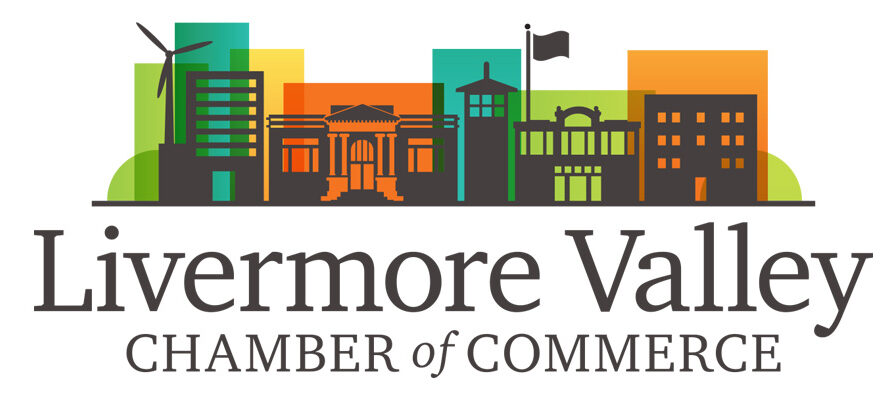
If you’re a new business owner, or are going to start a business in the Livermore Valley, here are some resources that will be useful to you.
Obtaining a Business License
For general information or to print out the Business License Application visit the City of Livermore website.
Filing for a Fictitious Business Name
Forms can be picked up at the Alameda County Recorders Office in Dublin, on their website or you may call 888-280-7708.
To contact local newspapers that file fictitious business names call Bay Area News Group at 925-462-4160 or the Independent News here in Livermore by calling 925-243-8000.
State Forms, Publications & Reports
California State Board of Equalization
1515 Clay Street, Suite 303
Oakland, CA 94612
510-622-4100
Website: www.boe.ca.gov
Employer Required Notices
Resources are available from the California Chamber of Commerce to help you comply with California labor laws.
Small Business/Self-Employed Taxpayer & Education Office
Internal Revenue Service website: https://www.irs.gov/businesses/small-businesses-self-employed
Legal Services
Livermore Valley Chamber of Commerce members.
Business Start-up Check List
S.C.O.R.E. (Service Corps of Retired Executives) Counseling
The Livermore Valley Chamber of Commerce and SCORE are working together to provide you with all types of assistance and programs to make your business successful. One way is through the advice offered by SCORE to both current and startup businesses regarding creating or revising a business plan, marketing, sales, finance, management and human resource issues. Score can help you achieve the business success you are seeking by avoiding the daily pitfalls you may encounter. To schedule an appointment contact the Chamber office at 925-447-1606 or if you wish to contact the SCORE office directly call 510-273-6611 or visit the East Bay Score website.
When beginning a business, you must choose which form of business use. Legal and tax considerations enter into this decision. The most common forms of businesses are Sole Proprietorship, Partnership, and Corporation.
- Sole Proprietorship – An unincorporated business that is owned by one individual. The simplest form of business organization to start and maintain. The business has no existence apart from the owner. Its liabilities are your personal liabilities and you undertake the risks of the business for all assets owned, whether or not used in the business. You include the income and expenses of the business on your own tax return.
- Partnerships – The relationship existing between two or more persons who join to carry on a trade or business. Each person contributes money, property, labor or skill, and expects to share in the profits and losses of the business. A partnership must file an annual information return to report the income, deductions, gains, losses, etc. from its operations. Each partner includes his or her share of the partnership’s items on his or her tax return.
- Corporations – In forming a corporation, prospective shareholders transfer money, property or both, for the corporation’s capital stock. A corporation generally takes the same deductions as a sole proprietorship to figure its taxable income. A corporation also can take special deductions. The profit of a corporation is taxed to the corporation when earned, and then is taxed to the shareholders when distributed as dividends. However, shareholders cannot deduct any loss of the corporation.
- S corporations – An eligible domestic corporation can avoid double taxation (once to the corporation and again to the shareholders) by electing to be treated as an S corporation. An S corporation generally is exempt from federal income tax other than tax on certain capital gains and passive income. Its shareholders include on their tax returns their share of the corporation’s separately stated items of income, deduction, loss and credit, and their share of no separately stated income or loss.
One rule in picking a name is choosing one that relates to your business (even though some dot-coms have been successful not following this rule, such as Amazon.com and Monster.com). If you have the resources for a long-term branding campaign, perhaps you do not need to follow this rule. Try to pick a name that will grow with your business and not limit you in the future.
Watch out for trademark conflicts, not only with a name but also with a logo or slogan. Look up current business names in the local telephone book, local government offices, the Federal Trademark Register, or the Secretary of State. Lastly, if it is appropriate, obtain a trademark from the U.S. Patent & Trademark Office to protect your business name and logo.
From a visual perspective, think about the logo and how the logo will look on a website versus on paper. Some designs do not look good in both formats. Also, keep your graphics standards tight to not only portray professionalism, but to achieve consistency that equates to strong branding.
There are exceptions, but most likely you must file a Fictitious Business Name Statement with the county clerk. The name must be published in a newspaper of general circulation once a week for a month in the county where the principal place of business is located. For corporations, LLCs and limited partnerships, the name of the business must be approved by the office of the Secretary of State before it accepts Articles of Incorporation or a Statement of Limited Partnership.
File with the California Secretary of State
Only corporations, LLCs and Limited Partnerships need to file with the Secretary of State’s office. The Secretary of State must approve all business names before they can be registered. For corporations, you must file Articles of Incorporation; Limited Partnerships use the Certificate of Limited Partnership; LLCs are Articles of Organization.
Secretary of State Offices
- Sacramento Headquarters: 1500 11th Street, 916.657.5448
- Fresno: 2497 West Shaw #101/102, 209.243.2100
- Los Angeles: 300 S. Spring, 213.897.3062
- San Diego: 1350 Front Street #2060, 619.525.4113
- San Francisco: 235 Montgomery Street, Ste 725, 415.439.6959
File a fictitious business name with the county
Counties need to keep track of business names to avoid customer confusion over local businesses using the same name. Also, customers can find out the basics of a company if they want to file a complaint. If you do not file, most banks will not open an account for your business and you will not be eligible to file a lawsuit in California.
Corporations, LLCs and Limited Partnerships do not need to file if they filed with the Secretary of State. There are exceptions, so research this issue thoroughly. For Sole Proprietors and Partnerships, most have to file with the county unless the last name of the person(s) is in the business name. Again, be sure to research this matter thoroughly.
Obtaining a FEIN
A partnership or sole proprietorship must obtain a federal employer identification number from the IRS. Corporations and LLCs must also obtain an FEIN, but they first must file with the Secretary of State. There is no cost for a FEIN. Use IRS Form SS-4.
Obtaining a Business License
A generic business license means just registering with the city tax collector. Most cities in California require all business structures to register. Some businesses, such as those that sell alcohol or serve food, need additional licenses and permits. The fee is different throughout the state. For more information, call your City Tax Collector or your County Clerk’s office if your location is outside the city limits. For these agencies, look in the telephone book under Government.
Seller’s Permit
Any business structure that sells tangible products must obtain a Seller’s Permit. This permit is obtained from the California Board of Equalization, which collects taxes from retail businesses. For more information, visit their Web site or call 800. 400.7115.
Special Permits
There are zoning permits, police permits, building permits, fire certificates, state occupational licenses, export licenses and many more. Contact the following agencies for more information:
CalGold EPA: Call (800) GOV-1-STOP to find your local permit center
The Office of Small Business: 916-322-5790
Some of the types of insurance you might need are:
- Basic/Extended Fire Insurance
- Liability
- Vandalism/Theft
- Vehicle
- Product Liability
- Malpractice
- Health
- Workers’ Compensation
Contact one of our Chamber of Commerce members for more information.
